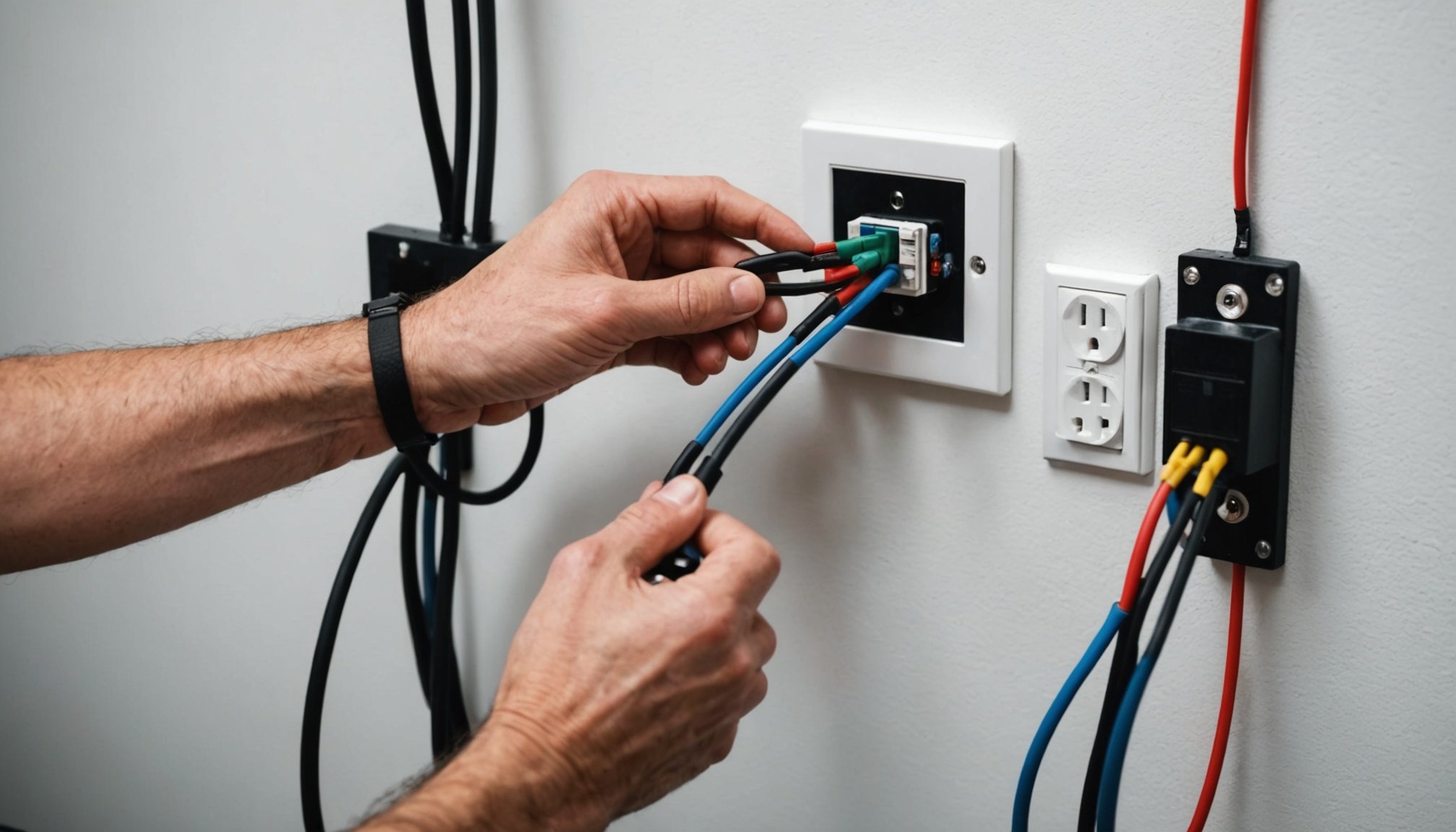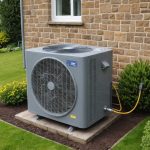Understanding Electrical Wiring Safety
Ensuring electricity safety in your home is crucial to preventing accidents. Regular electrical safety inspections can spot potential hazards before they become serious problems. These inspections involve checking wiring, outlets, and circuit breakers for wear or damage, ensuring that everything is up to code and functioning properly.
Identifying common electrical hazards is another essential step. Misused extension cords, overloaded outlets, and outdated wiring systems are often culprits that can lead to electrical fires or shocks. Homeowners should be aware of visible signs such as frayed wires or scorch marks around outlets, which could indicate larger issues.
Also to see : Discover the 2 litre insulated water bottle with straw
For those interested in DIY electrical work, adhering to recommended safety practices is vital. It is always beneficial to switch off power at the source before starting any project. Wearing insulated gloves and using tools designed for electrical work can help protect against electric shocks. Double-checking your work and consulting electrical safety guides can further ensure you’re taking the necessary precautions.
Focusing on these preventive measures enhances homeowner safety while dealing with electricity. By understanding and implementing these safety tips, one can significantly minimize risks associated with electrical tasks. Ensuring you’re well-prepared not only keeps your home safe but also fosters confidence when handling wiring matters.
In the same genre : Creative Vertical Garden Solutions for UK Flats with Limited Outdoor Space
Common Electrical Wiring Issues in UK Homes
Navigating the maze of electrical wiring in older UK homes can be daunting. Common wiring problems in these homes often stem from outdated systems that weren’t designed for today’s energy demands. Key issues include aluminium wiring, which was popular in the mid-20th century but poses risks** due to its tendency to oxidize and cause electrical malfunction.
Homeowners should be vigilant for warning signs such as persistent circuit breaker trips, flickering lights, or burning odours. These signs often indicate underlying electrical problems that require immediate attention. Spotting these can help prevent potential hazards and keep your home safe.
For addressing these electrical malfunctions, homeowners can start by ensuring their electrical panel is up to date, replacing any old wiring systems with modern alternatives like copper, which is safer and more reliable. Engaging a qualified electrician for an inspection is also crucial in troubleshooting and resolving these issues effectively. Transitioning to LED lighting can reduce electrical load, further safeguarding older systems.
Ensuring electrical safety and functionality rests heavily on proactive maintenance and timely intervention. Regular checks can save you from larger, more expensive repairs down the road, while providing peace of mind that your home is secure.
Tips for Energy Efficiency in Electrical Systems
Understanding energy efficiency, reducing electricity costs, and optimizing wiring can greatly impact household budgets and environmental footprints. Simple changes can make a big difference.
Upgrading to Energy-Efficient Appliances
Investing in energy-efficient appliances is a major step in reducing electricity costs. Appliances with an Energy Star rating consume significantly less power than standard models. Although the initial cost may be higher, the long-term savings on utility bills often offset this.
Utilizing Smart Technology
Smart home technology is transforming how we manage energy consumption. Devices like smart thermostats and lighting systems allow for real-time energy monitoring and remote operation. By automating schedules and analysing usage patterns, these devices help in optimizing electricity consumption. This not only reduces costs but also enhances convenience.
Importance of Proper Insulation
Proper insulation plays a critical role in maintaining energy efficiency. Insulation helps in reducing the amount of heating and cooling needed by keeping homes at a steady temperature. This reduces the load on HVAC systems, leading to lower electricity usage. Inadequate insulation can lead to significant energy losses, thus increasing costs unnecessarily.
Implementing these strategies creates a more sustainable, cost-efficient living environment.
Guidelines for Electrical Inspections
Before diving into the details of electrical inspections, it’s crucial to understand their significance. Electrical inspections in the UK ensure that your home complies with safety regulations and standards. This process not only guarantees safe electrical systems but also helps prevent potential hazards.
Timeline for Routine Inspections
Routine inspections are vital to maintain electrical safety. It is generally recommended that homes undergo electrical inspections every 10 years. However, if the property changes ownership or exhibits persistent electrical issues, inspections should occur sooner to address potential risks promptly.
Key Aspects Evaluated
Inspectors focus on multiple aspects during an inspection to ensure adherence to UK standards. They evaluate wiring conditions, ensure protective devices operate effectively, and assess the overall status of circuits and systems. Any defects found must meet current UK electrical regulations to pass the evaluation successfully.
Understanding UK Standards
To ensure safety and compliance, inspectors strictly follow UK electrical standards. These regulations dictate the design, installation, inspection, and testing of electrical installations. Homeowners must stay informed of changes to these standards to guarantee compliance.
Routine evaluations are not only compliance requirements but are instrumental in maintaining a safe living environment.
When to Consult a Professional Electrician
Understanding when to hire a professional electrician is crucial for maintaining safety and efficiency in your home’s electrical systems. Although many minor fixes can be handled with some DIY knowledge, there are situations that unequivocally require expertise.
Firstly, if you’re experiencing frequent circuit breaker trips, this can indicate a severe underlying issue that needs expert electrical repairs. Similarly, if you notice flickering lights, burning odours, or sparking outlets, seeking professional help is strongly advised to avert potential hazards.
For those seeking homeowner resources to find trustworthy electricians in the UK, websites such as TrustATrader or Checkatrade are invaluable. These platforms offer verified reviews, helping you choose a reliable professional with confidence. Additionally, the Electrical Safety First website provides a tool to search for registered electricians.
The assurance a professional brings cannot be overstated. With their qualifications and experience, certified electricians can provide guarantees for their work. This not only prevents future issues but also ensures that all repairs and installations comply with the latest safety regulations. In essence, consulting a qualified electrician protects both the integrity of your home’s electrical systems and the safety of your household.











